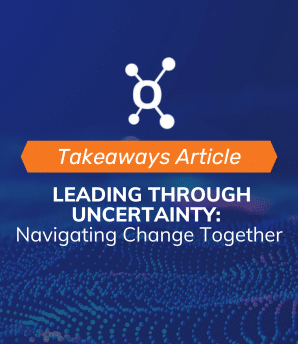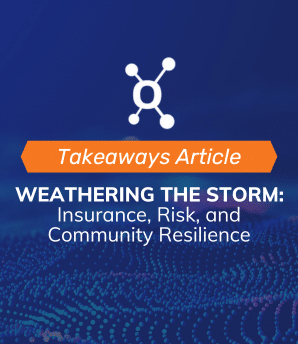Zaneta Adams is an accomplished attorney, public servant, and U.S. Army veteran with extensive experience in law, leadership, and advocacy. She has held prominent roles in both state and federal government, including serving as Michigan’s Cabinet Director for Veterans Affairs. In addition to founding a nonprofit organization focused on supporting women veterans, Adams has developed expertise in veteran policy, intergovernmental affairs, and community engagement. Now working as the Deputy Assistant Secretary for Intergovernmental Affairs at the U.S. Department of Veteran’s Affairs, she plays a key role in shaping policies that impact veterans and diverse communities nationwide.
Takeaways:
- A career dedicated to advocacy and public service can create meaningful impact, especially in areas like community engagement and veterans’ support.
- Effective leadership is built on transparency, authenticity, and empathy, which fosters trust and strong team collaboration.
- Working in government requires patience and persistence, as policies benefit from thorough review and input from diverse perspectives to achieve lasting impact.

Can you tell me about your career path that has led you to where you are now?
I graduated from law school in 2014 and passed the bar in 2015. I then went into private practice, focusing on municipal law, where I did a bit of everything related to representing cities and counties. It was exciting work. Around the same time, I founded a nonprofit organization for women veterans, which is now celebrating its 10th year. The goal was to better connect women veterans to resources and each other to help reduce suicides – something I’ve personally struggled with.
Going back even further, before I started down this career path, I served as a soldier in the U.S. Army, both in the Reserves and National Guard. In 2005, I was injured after falling 10-11 feet off a truck. The injury left me in a wheelchair, and I was told I’d never walk again. It felt like I had to fight the VA for my benefits, which inspired me to finish my undergraduate degree in psychology and then go to law school so I could help other veterans.
While working at the law firm, part of my practice involved helping veterans connect with their compensation and pension benefits. I became a subject matter expert in that area and helped veterans across the country. Eventually, I applied for a position as a cabinet director for Veteran’s Affairs in Michigan under Governor Whitmer. I was honored to be selected as the first woman, first person of color, and first woman veteran to hold the role in the state’s history. It came with a lot of responsibility, but also a lot of firsts.
I was then approached by the Biden-Harris Administration with opportunities to join their team, and I made the transition to work with the Administration in 2023.
Which specific policy areas or legislative issues are you most passionate about, and how do you stay informed and engaged in those areas?
Right now, I’m focused on the intergovernmental space, working closely with mayors and governors. My experience as an attorney with those individuals and then moving into the public sector where I can share information from a federal perspective has allowed me to see both sides – it’s something I’m very passionate about. But I would say the biggest policy area that I weigh in on daily is in my work with veterans.
This work isn’t just a job for me, it’s deeply personal. I’m a disabled veteran, my husband is a disabled veteran, and many of my close friends are veterans. Many of which struggle with mental health challenges, so it’s important to me that we at the VA have the right policies to serve veterans where they are and when they need help. It’s a big piece of my work and had I not gone through my own challenges, I don’t know that I would have the same level of compassion. Sometimes, difficult experiences create a silver lining.
Part of my role is also educating the stakeholders we serve – including Tribal leaders – on what’s happening at the VA. Whether that be educating them on things like new regulations or on areas where we may need improvement. For transparency, I have to be aware of the many different policies and actions that impact veterans and the VA. With my intergovernmental position, I have the tremendous opportunity to weigh in on policy, regulations, and things coming down the pipeline before it impacts communities – state, local, tribal, rural, and faith-based. I get the privilege to say, “this may work,” or “let’s rework this.” Looking at homeless programs, for example, and coming up with creative suggestions to make it better. With so many moving parts – like the Veteran’s Health Administration, Benefits Administration, National Cemetery Administration, and their various program offices – there’s always something going on. Being able to weigh in allows me to make recommendations for things veterans need. It’s an incredible privilege to weigh in on policy as it relates to the stakeholders we serve.
I’m also a user of these policies and benefits myself. I rely on VA medical services and one day I will have to utilize the National Cemetery benefits, and maybe a state veterans’ home. So, my work isn’t just altruistic – it’s making sure the atmosphere and climate is better for all veterans that are using them, including myself.
What do you believe sets the federal government apart as a unique work environment, and how do you navigate its challenges in your everyday work?
What sets us apart is that we’re very methodical to avoid missing anything. That’s not a bad thing, but it does mean things move slowly because we need to be risk averse. It can be challenging because some people may take things negatively, and we have to anticipate those issues and our response. With my experience moving from private law to state government and now in federal government, it’s much different in the private sector – not that they’re not risk averse, but they’re able to make decisions a bit quicker since there aren’t as many layers of review.
The way I navigate these challenges is by staying focused on priorities and consistently following up. In government, new priorities often emerge – maybe there’s an emergency at a medical center or an issue at a veterans’ home. There are so many things we may not consider a priority until it is an emergency. We have to manage that. If everything becomes a priority, then nothing is actually a priority. Keeping them front of mind and following up can help to move things along quicker – not lightning speed, but it can make them move quicker. Being patient and understanding that it’s great to have multiple eyes on things because everyone has a different perspective. There are a lot of situations where people might see something that I don’t.
Describe a challenging or rewarding project that significantly influenced your growth as a professional. How did you handle the challenge, and what did you learn from the experience?
Working as a supervisor/manager presents challenges. It’s not in just one space, but change is really hard for staff. Especially the positions I’ve been in as of late, appointed positions, you’re not going to have the 10 or 20-year continuity with someone because appointees come in at the pleasure of the leader during that time. Building culture, buy-in, and trust with your staff is always going to be a challenge – knowing there will be a rotation every 2, 4, or 6 years. The first time I had to deal with it I was asking myself, “What do I do here?” but I figured out some creative ways to get staff engaged and I think part of what made it successful was being transparent. Letting staff know what’s happening, and why.
As a parent – I have 6 children – I’m used to telling my kids to do something just to do it, but you can’t do that as a manager or leader. People want to know why and overcoming that side of things is critical in building trust and developing buy-in that the changes are not going to be too difficult. Sometimes you must come in and change things because things are not functioning well, the process isn’t working or maybe your leader wants different processes. You have to build trust quickly, and you do that by engaging with staff. For example, we have a weekly staff meeting where I ask ice breaker questions and they get to know each other, laugh about things, and learn things you would never expect from someone. It’s a great opportunity for people to relax and enjoy coming into work. You have to allow people space to share – it doesn’t matter what level they are; many people have experience and expertise from their lifestyles or where they come from that could lend to a solving a problem. I’m not the smartest person in the room on everything – that’s why other people are there. So, I encourage people to step up and speak up, because you might be the smartest person on a given topic.
What has made you successful in your role and what advice would you give to individuals who aspire to work in the federal government?
One thing that I frowned on, especially coming into a political space, was being vulnerable. Being the first woman, first person of color, I didn’t want to be vulnerable because there are already expectations as a woman. I eventually shied away from that mindset in a big way because I believe being authentic and being vulnerable allows people to relate to you more as a person and not just a figure head.
That has helped me to be very successful – not just with my staff, but with the stakeholders I meet with, the veterans I engage with and everyone in between. Being okay to be myself. And that, to me, is critical for a leader. You have to be okay being yourself, saying what bothers you, or where you come from. I talk openly about how I struggled with suicidality – I didn’t used to, because I didn’t want people to think I couldn’t do a job or that I’m not strong enough for certain things. But my vulnerability has changed and saved lives. When you see that, it empowers you to continue to share in spaces where it’s necessary, but also have empathy for those around you. I think authenticity is probably the number one thing I would recommend for leaders to come into the door with.
Word association, what is the first word that comes to mind for each of these?
- Policy – Bureaucracy
- Networking – Important
- Writing Skills – Critical
- Federal government – Large
- Leadership Connect – Networking at high level






